In today’s ever-evolving digital landscape, relying solely on organic content for advertising has become a diminishing strategy. The online world has transformed into a bustling marketplace. Every brand and company vies for attention. It’s no secret that social media platforms have shifted towards a pay-to-play model, leaving businesses with no choice but to adapt their marketing approaches.
As a result, digital marketing has emerged as an indispensable tool for brands striving to achieve their desired outcomes. By employing a well-crafted digital content strategy paralleled with an efficient media budget allocation, brands can unlock a world of possibilities and generate relevant leads.
Recruitment is Marketing
This concept applies to recruitment as well. As Matthew Jeffrey, Head of Global Sourcing & Employer Branding at SAP, said, “Recruitment is marketing. If you’re a recruiter nowadays and don’t see yourself as a marketer, you’re in the wrong profession.” The pursuit of qualified talent is becoming increasingly challenging, with 73% of all employers struggling to find skilled candidates, according to Manpower.
Recruitment marketing is emerging rapidly as a result. With sponsored ads, businesses can secure prime placements on search engine results pages, social media feeds, or popular job boards, giving them unparalleled visibility.
A study by Indeed found that 65% of job seekers start their search on search engines, highlighting the importance of paid search advertising in recruitment marketing. It is a strategy aimed at spotting, engaging, and converting potential candidates by widening your reach by publishing job advertisements on various online platforms your ideal candidate often visits. This approach, known as the multichannel approach, involves publishing display ads on job boards, niche sites, apps, and search engines offering Search Engine Advertising (SEA), Pay Per Click (PPC), etc.
However, achieving the desired high volume of clicks and applications can only be challenging with a sufficient budget to support this approach in an oversaturated market. This is where paid advertising comes in.
Why Paid Advertising Boosts Your Recruitment Goals
#1: Enhanced Conversion Rates
It’s the nature of the algorithm! Programmatic Recruitment Advertising and display ads work on a per-click basis, meaning employers pay each time a job seeker clicks on their job post. The higher the allocated budget, the higher the possibility of generated clicks.
This increased click-through rate can lead to more qualified applicants, ultimately reducing the time and cost of finding the right candidates.
Studies have shown that a free job advertisement averages 0.09 applications compared to 8.07 applications per post for paid advertisements. Therefore, sponsoring the job ad can drive more qualified traffic to a website, resulting in higher volumes of applications and a higher return on investment (ROI).
Some of those job boards come in bundles! The different bundles (such as light, boost, etc.) offer complete control of your job advertising spend. While the number of generated applicants is beyond anyone’s control, the maximum budget you choose from the different bundles can guarantee that the channel will only push up to that limit.
#2: Extensive Reach And Targeting Capabilities
Paid media’s targeting accuracy has been uncertain, but it can be as precise as desired thanks to its sophisticated algorithms. Most leading advertising platforms offer advanced features that help focus on specific audiences for outreach.
Also, Social media platforms such as LinkedIn, Facebook, Twitter, and Instagram have become go-to channels for professionals and job seekers. These platforms provide access to a vast talent pool across diverse industries and demographics. The advanced features available include location selection, interests, job title, skills, field of study, and more, all critical factors in targeting.
For example, LinkedIn, a professional networking platform, is particularly valuable for recruitment. It allows recruiters to target candidates based on their job history, industry, educational background, and professional affiliations. This precision ensures that job ads are shown to the most relevant candidates, increasing the chances of attracting qualified applicants.
#3: Reaching passive candidates
Reaching passive candidates can be tricky. However, paid media opens up opportunities to tap into the vast pool of passive candidates who may not be actively searching for jobs. When job seekers come across targeted ads tailored to their interests and needs, they are more likely to click through and engage with the content.
This way, recruiters can capture the attention of individuals who possess desirable skills and experience but need to seek new employment actively. They are more desired by hiring managers, mainly because they are less likely to look at competing offers and tend to stay in jobs 21% longer than active candidates. They make up an estimated 80% of the workforce. This proactive approach increases the likelihood of finding highly qualified candidates.
Paid Advertising in Recruitment – Conclusion
The truth is uncomfortable but required. Employers need to adapt to the change. Otherwise, their organic ads will drown in the noise of paid advertising. So, the next time you’re about to advertise for a job, ask yourself these questions:
- How specialized is the job? Will organic job postings generate qualified applicants, or is it necessary to sponsor the position to reach passive and qualified candidates with specific skill sets?
- How quickly are you looking to hire? If the role is time-sensitive, is it necessary to boost the job to get applications as soon as possible?
- Is the job located in a city with a limited pool of relevant or qualified candidates? If so, would sponsoring the job help widen the reach of candidates in nearby areas who might be willing to commute or work remotely?
- Have you been disappointed by the results of previous organic job ads? If yes, would boosting the next job ad be a better strategy to assess the results?
If you can answer some of these questions with a sighing “Yes,” and you might even get a little grumpy… don’t! There are quadrupzillionz companies specialized in advertising for recruitment needs. They’re just waiting to be researched. Or simply check out our Job Marketing Solution and figure out, why companies like Microsoft or BASF are already partnering with us.
Related Content:
Check out another article: ‘The power of job advertising”.
Follow us on LinkedIn.










